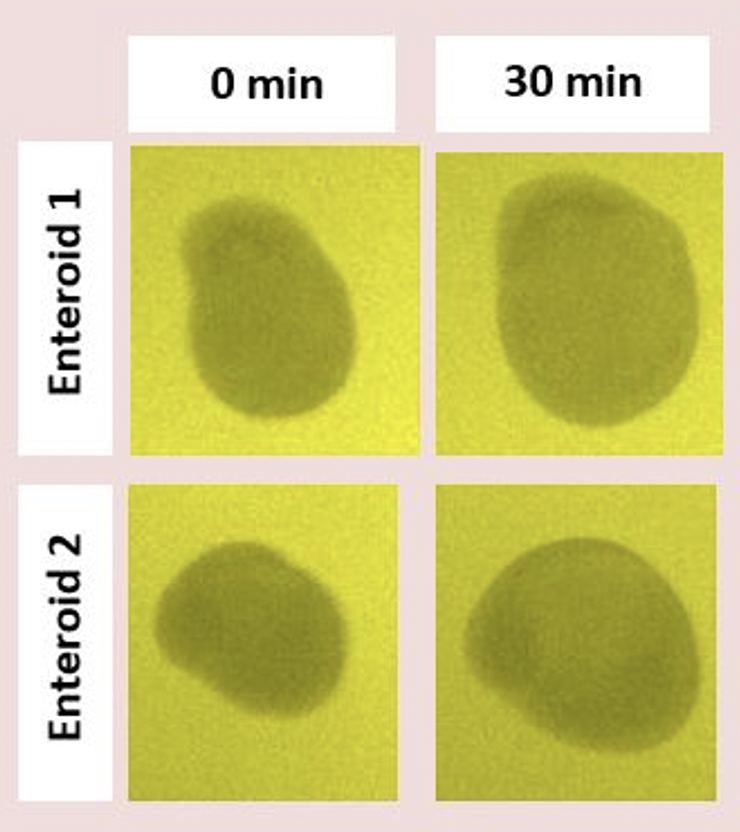Illustration (click to hide):

Project Description
In the process of drug development, it is well recognized that the intestine plays a significant role in determining the systemic exposure and pharmacological response to orally-administered drugs (Shugarts & Benet, 2009). However, the physicochemical and transport characteristics of the drug candidates differ. We want to study this transport processes in adult stem cell derived 3D human intestinal enteroids. The 3D enteroids can differentiate to the various intestinal epithelial cell lineages, maintain proper polarity and barrier function, and transport nutrients and drugs. The 3D enteroids has potential to become a powerful physiologically relevant model for studies of intestinal barrier function, drug transport and pre-systemic metabolism. Therefore, our aim is to investigate 3D intestinal enteroids as an in vitro model that more closely reflect the human intestine in vivo as compared to currently used intestinal cancer cell lines. First, we grow organoids in Matrigel. Then, we establish apical-out enteroids by removing matrigel at day 3 and differentiate them for 6 days. We have followed the barrier integrity and fatty acid uptake kinetics with fluorescent markers. With support from BIIF, we will learn how to analyze our time lapsed images by using Image J.
Project Information
-
BIIF Principal Investigators
- Gisele Miranda
External Authors
Merve Ceylan, Per Artursson -
Date
2022-09-23 🠚 Current